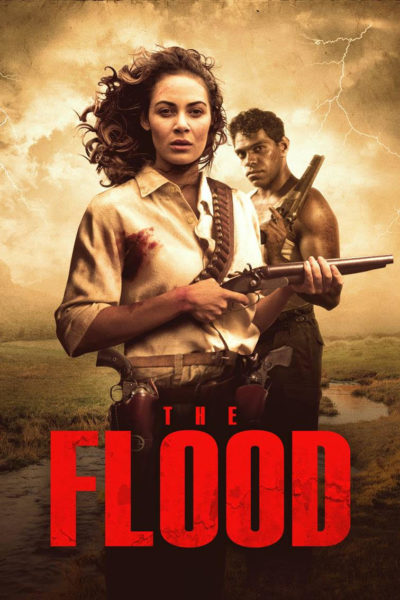★★★
“Destroy me? They made me…”
 The first eighty or so minutes of this are really good: powerful, committed and extremely angry film-making. And justifiably so, I would say. Unfortunately, the film runs for a hundred and seventeen minutes, and definitely goes off the rails towards the end. The gritty realism which was perhaps the movie’s strongest suit is replaced by odd fantasy sequences, such as the fugitive couple suddenly dressed, in the middle of a forest, as if they were attending a Victorian embassy ball. I’m not certain what the point of these elements, or the anachronistic pop songs were. I am certain that they didn’t enhance my appreciation of the film in any way, and that’s a shame, considering how assured it had been in the early going.
The first eighty or so minutes of this are really good: powerful, committed and extremely angry film-making. And justifiably so, I would say. Unfortunately, the film runs for a hundred and seventeen minutes, and definitely goes off the rails towards the end. The gritty realism which was perhaps the movie’s strongest suit is replaced by odd fantasy sequences, such as the fugitive couple suddenly dressed, in the middle of a forest, as if they were attending a Victorian embassy ball. I’m not certain what the point of these elements, or the anachronistic pop songs were. I am certain that they didn’t enhance my appreciation of the film in any way, and that’s a shame, considering how assured it had been in the early going.
There’s no doubt aboriginal Australians received a really bad deal from their government, up until very recent times. As this film documents, they were forced off their lands, and their children frequently taken away as wards of the state. Even those who served their country honourably in World War II, like Waru Banganha (Cook), were denied basic civil on their return to civilian life. Hard to blame Waru for going berserk, and killing some of the Mackay family who had sexually abused his wife, Jarah (Lane), and their daughter, Maggie (Williams), while he was fighting in the jungle. Worse is then to follow, as Jarah is gang-raped while in custody, in an attempt to get her husband’s location. “Don’t let what they did you destroy you,” a friend tells her. Jarah responds with the chilling line at the top of the review. She’s not wrong, as she takes revenge on the Mackays and their cronies, first rescuing and then alongside Waru.
What’s interesting is that, despite his military training, it’s largely Jarah – no mean shot with a gun herself – who takes the lead, and shows little or no mercy. She has decided that they must pay, even those who were only tangentially involved in ripping her family apart, and does so with a clear-headed intensity and ferocity which is wonderful to behold. This kind of story can easily feel like pandering, playing on liberal white guilt, yet McIntyre avoids that. The closest cousin to the body of this picture might be the blaxploitation flicks of the seventies, where the hero or heroine was pushed too far, and eventually stuck it to “the man”. Abosploitation? Though if we’re making up words, it also feels like a “Vegemite Western”, despite the post-war time-frame.
Throughout this, there have been flashbacks and memories that could be dreams. However, these have generally been restrained, and if not maybe adding too much to the film, don’t feel like they hurt it. That changed in the final third, with the pace dropping close to zero, just when it should be ramping up to a climax with all guns blazing. I will admit in particular to rolling my eyes at the redemptive fate of the main antagonist, who deserved considerably worse than he received. The energy and momentum this possessed, just about carries the film over the finish line. Yet I can’t help feeling. it should have been a great deal more effective.
Dir: Victoria Wharfe McIntyre
Star: Alexis Lane, Shaka Cook, Dean Kyrwood, Dalara Williams




